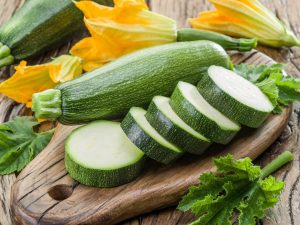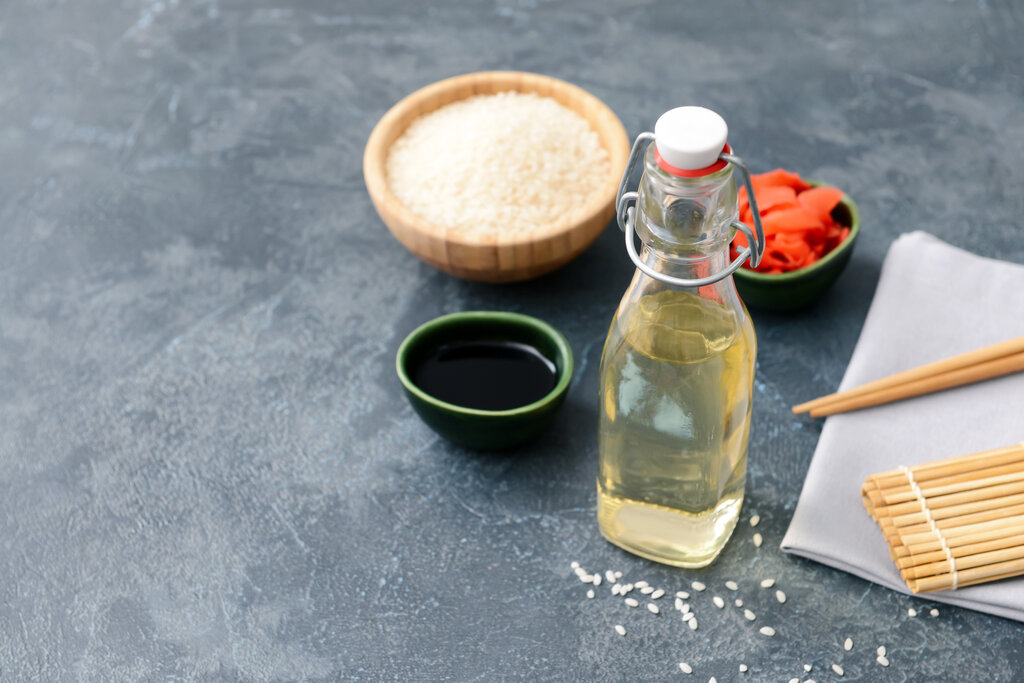
One glance at the bottles of rice wine vinegar and rice wine sitting side by side in the condiments section at the farmers market will probably get you confused. This is an understandable predicament. After all, considering their similar names, they could inevitably be mistaken for one another.
So, here’s the moment of truth: both rice wine vinegar and rice wine are magical elixirs in Asian recipes, but they are different from one another. Continue reading for the full scoop on the many differences between these two essential ingredients. While we’re at it, we’ll also enlighten you up on the rice vinegar vs rice wine vinegar debate.
What Is Rice Wine Vinegar?
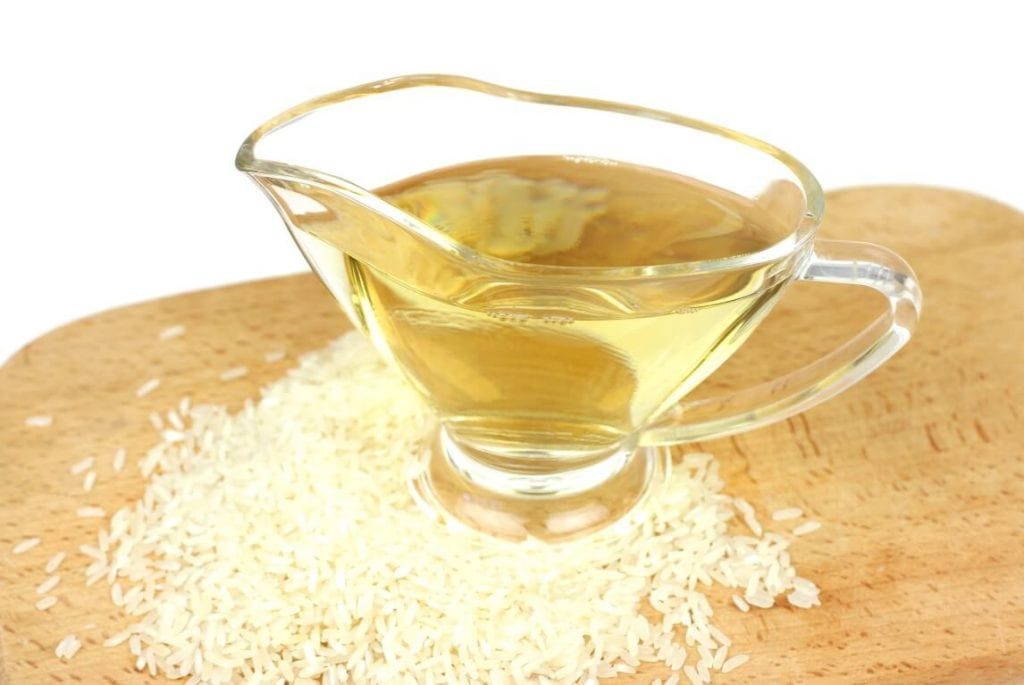
Before all else, let’s demystify the age-old enigma in the world of condiments: are rice vinegar and rice wine vinegar the same? The answer is a simple yes! In essence, rice vinegar is just another moniker for rice wine vinegar. So, when you’re at the condiment aisle of any supermarket, you can grab either of the two in case you’re making a wakame sea salad. And you can rest assured that the dish will turn out delicious!
Now, what exactly is rice vinegar? This flavorsome liquid is the product when the sugars in rice undergo a fermentation process using alcohol and acetic acid. However, some varieties make use of other ingredients and go through different preparation procedures. That being so, the resulting finish can have varying colors and tastes. Some may have a clear, red, or brown color, with each having a distinct palate.
What Is Rice Wine?
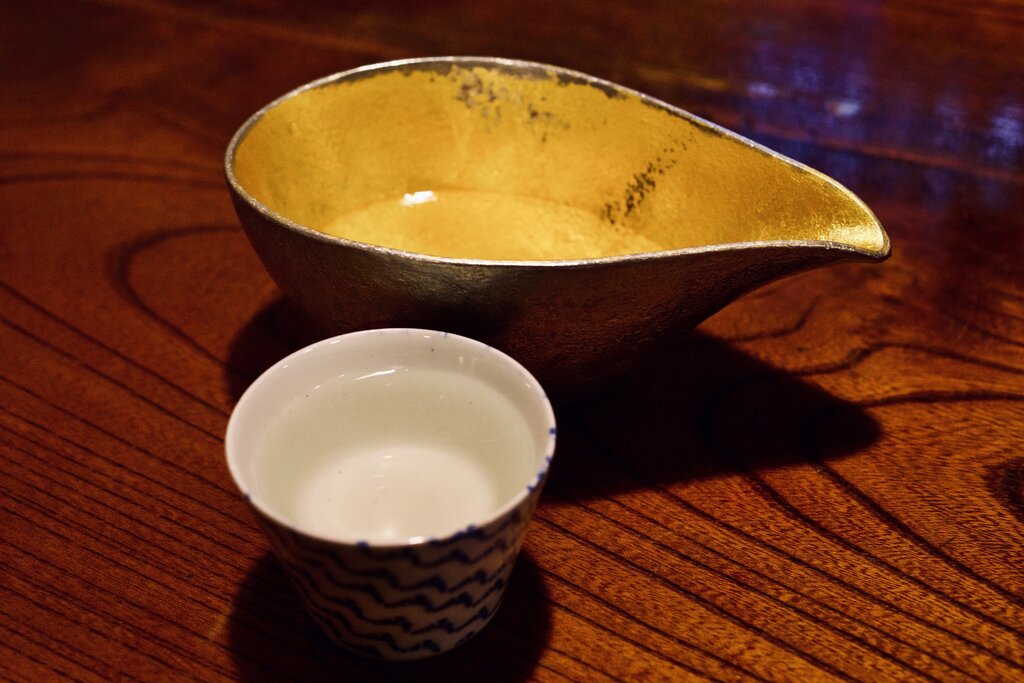
Much like rice vinegar, rice wine is also a well-known component in Asian dishes, especially in Japanese cuisine. This alcoholic drink is made by fermenting glutinous rice with the use of yeast and other foodstuffs. Rice wine is also Japan’s national drink. So, you can expect a lot of Japanese dishes featuring this particular liquid ingredient.
Rice Wine vs Rice Vinegar
If you love Asian cuisines as much as we do, there’s a good chance that you’ve already come across these two flavorful liquids. And anyone familiar with these ingredients can’t deny the magic they hold in the culinary world.
But what’s even the point of distinction between these popular ingredients? Wonder no more as we’ve already delved deeper for the answer! Below you’ll find out how exactly they differ from each other, straightening out all your confusion!
Fermentation Process
Both rice vinegar and rice wine go through fermentation. However, the procedures are altogether different.
When making rice vinegar, the sugars in rice undergo a few fermentation processes. First, the rice starches are fermented into alcohol. Then, to remove the alcohol content, the next process makes use of vinegar mother, an acetic acid bacteria. The resulting product is a tad bit sweeter and milder than white distilled vinegar.
Conversely, sticky or glutinous rice is used to produce rice wine. Then, the sugars derived from the rice are fermented using yeast, converting the sugars or starches into alcohol during the process. However, it’s worth knowing that rice wine contains less alcohol as compared to Western wines.
Flavor
As they both have undergone distinct methods to bring about their deliciousness, you will notice a significant difference in their palates. Rice vinegar is distinguishable by its acidic flavor profile with an underlying sweet, delicate taste. At first sip, you’ll also notice a hint of sweetness from rice wine. There exists an array of rice wine varieties, with most of them falling into the sweeter scale.
Varieties
By now, you can say that you’re no longer a stranger to rice wine vinegar and rice wine. But did you know that these flavorful liquids have several varieties to boot? Each kind, most often than not, undergoes different fermentation methods.
Among the widely-known types of rice vinegar are seasoned rice vinegar and Chinese rice vinegar.
- Seasoned rice vinegar – As its name implies, seasoned rice vinegar is made by flavoring the plain rice vinegar with sugar and salt. This variety adds a sweet, salty, and zesty punch to dishes.
- Chinese rice vinegar – Meanwhile, the mellow palate of Chinese rice vinegar is a delicious addition to soups.
Next are the different rice wine varieties, including mirin, sake, and Shaoxing rice wine.
- Mirin – It’s the by-product when steamed glutinous rice, a cultured rice called koji rice, and distilled rice liquor go through a fermentation process. And touching on the mirin vs rice vinegar matter, both have hints of sweetness. However, mirin lacks the distinct pungency that rice vinegar offers.
- Sake – Rice wine is sometimes referred to as sake. However, they’re a tad bit different in some ways. This particular rice wine variety is made using rice, water, koji mold, and yeast.
- Shaoxing rice wine – This variety is also known as Chinese cooking wine. It has a sharp alcoholic flavor, as opposed to the sweet palate of the other varieties.
Uses In Cooking
Both rice wine and rice vinegar are among the most common ingredients in Asian recipes. Each has found its way onto plates of teriyaki and bowls of soup, given their distinct palates.
Grab that jar of rice vinegar when you’re whipping up a dish that needs a balance of sweetness and pungency. You can use it to enhance the flavor of this delicious baked cod. This vinegar can also add vibrancy to sauces and salad dressing. And as it turns out, its value extends outside the culinary realm! This flavorful condiment is also useful for cleaning due to its acidity levels.
As intoxicating as it is to drink, rice wine also has its fair share of usefulness in the cooking scene. It lends its delicate flavor to sauces and marinades. You can use it to make a teriyaki sauce for this scrumptious beef teriyaki.
Nutrition Facts And Health Benefits
These two flavorful liquids also boast a few healthful benefits. Rice vinegar contains small amounts of nutrients, including protein, fiber, potassium, and more. As it contains high amounts of amino acids, it’s beneficial to the immune system. This vinegar is also good for your digestive and heart health. Rice wine, on the other hand, also has its nutritional benefits. This wine can help boost immunity and slow down the signs of aging, among other things.
Substitutes
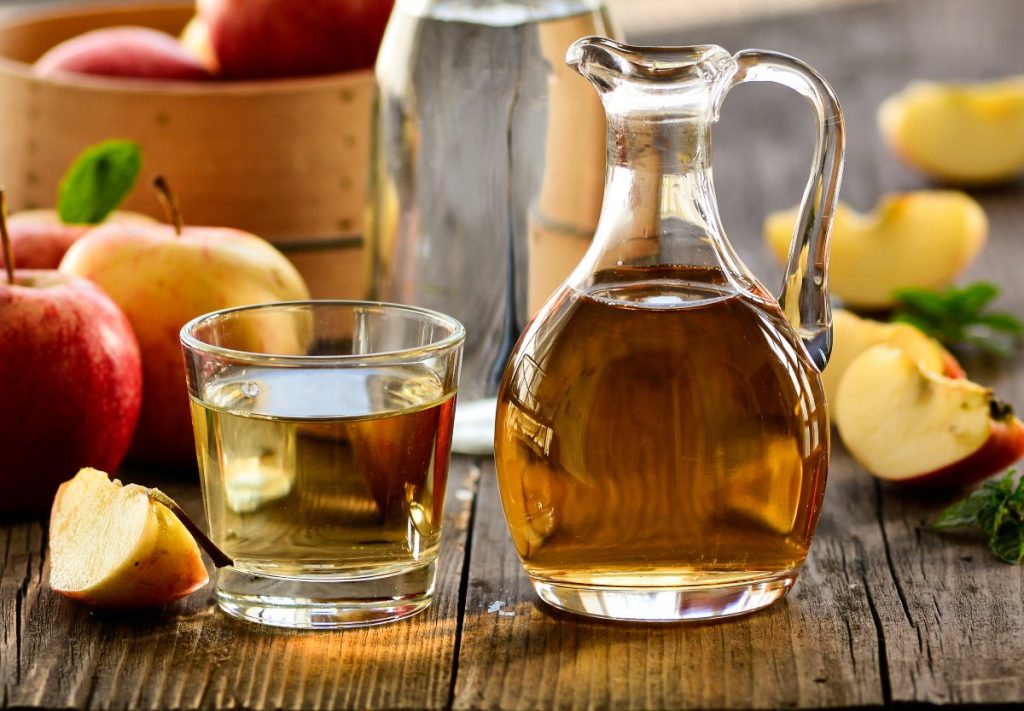
Can rice wine and rice vinegar be used interchangeably? Even though both products have the same key component, swapping them for one another is not exactly a great idea. Nonetheless, should you run out of stock, here are the best alternatives:
Rice Vinegar
Here are some alternatives for rice wine vinegar that you can use in a pinch:
- Apple cider vinegar – Similar to rice vinegar, apple cider also has a subtle palate. You can use this as a substitute in marinades and vinaigrettes.
- Sherry vinegar – Having a pungent taste balanced by sweet notes, this vinegar makes for a great alternative as well. As such, you can incorporate this to most recipes that call for rice vinegar.
- Red wine vinegar – This is a bit more acidic than rice vinegar. Still, you can also this as an alternative, especially in sauces and meat dishes. We suggest that you add a small amount of sugar and salt to tame its zingy flavor.
Out of red wine vinegar? Here are the 8 Best Red Wine Vinegar Substitute Choices and How To Make It.
Rice Wine
Meanwhile, here are the best rice wine substitutes in case you run out of stock:
- White wine – Though they have different palates, you can also replace rice wine with white wine.
- Pale-dry sherry – Its flavor profile and color is akin to that of Shaoxing rice wine, making it an excellent replacement as well.
- White grape juice – Combine this with lemon juice and you got yourself a good mirin substitute!
Rice Wine Vinegar Is Acidic, and Rice Wine Is Sweet
Straightaway, you’ll notice the difference between rice wine vinegar and rice wine through their flavor profiles alone. Rice vinegar, with its zingy palate, adds a pop of vibrant flavor to your dish. Meanwhile, because of its dominant sweet taste, you can use rice wine in recipes that need some saccharinity. Now that you know how to tell them apart, go ahead and make delicious dishes with either of the two ingredients!

